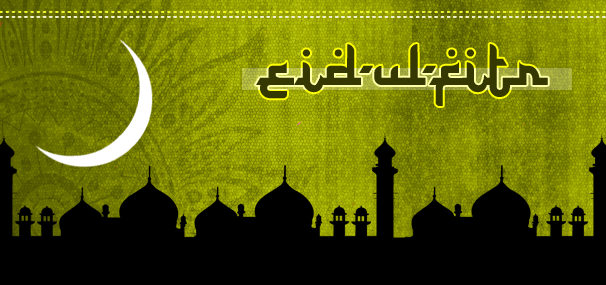 Eid ul Fitr DecorationsFestivals have long been associated with pompous decorations, glitzy fervor and colorful illuminations. Eid ul Fitr is no exception to this rule. The unique charm of the festival is manifest in the elaborate embellishment that adorns the otherwise modest abode of Eid celebrators. Every Muslim home radiates splendor and magnificence on this auspicious day. People bedeck their surroundings with a new, flashy look and give a warm welcome to visitors, friends and relatives. They also dress up in new outfits, to match up to the festive spirit and all-encompassing aura of the festival.
Eid ul Fitr DecorationsFestivals have long been associated with pompous decorations, glitzy fervor and colorful illuminations. Eid ul Fitr is no exception to this rule. The unique charm of the festival is manifest in the elaborate embellishment that adorns the otherwise modest abode of Eid celebrators. Every Muslim home radiates splendor and magnificence on this auspicious day. People bedeck their surroundings with a new, flashy look and give a warm welcome to visitors, friends and relatives. They also dress up in new outfits, to match up to the festive spirit and all-encompassing aura of the festival.
The significance of Id-ul-Fitr for Muslims corresponds to the meaning Diwali has for Hindus and Christmas for Christians. People clean their houses to make it spanking new and go for a more traditional way of decorations. Green, the holy color for Muslims, holds special importance on the day and is used to decorate homes as well. Floral bouquets, huge in size, are made and hung at the entrance of the homes, as a greeting symbol. Usually, the beautification of homes begins with the commencement of the holy month of Ramadan. Children also prepare Eid crafts, like cards, crescent moon, paper flowers, hangings, gift bags and other creative items, to celebrate the occasion in their own special way.
Id-Ul-Fitr Decoration Ideas
Inside Decorations
On Eid ul Fitr, you need to make the entire house look spic and span, by cleaning it thoroughly. Not even a single corner should be left covered with dust.
Inside the home, decorations can include flowers, wall hangings and crafts made at home. For the more artistic souls, there are a lot of innovative options. They just need a plain cardboard, which can be cut into different shapes and sizes, for instance resembling crescent moon and stars. They can be used as wall hangings inside the house.
The decoration items can be purchased from the market as well. Right from the floral arrangements to the crescent moon, there is no decoration that you cannot find in the market these days.
A prayer rug can also be designed on your own, on the festival of Eid. All the family members can participate in its preparation and make it all the more special. Embroidery can be used to enhance its beauty.
Outside Decorations
Clean the outside of your house thoroughly. It will look more beautiful and welcoming, if the surroundings have a fresher look.
Eid banners can be made on your own or purchased from the market and used to decorate the outdoors.
Colorful illuminations are the best way to decorate the outside of your house. Go for elaborate illuminations, if your budget allows.
Since Id-ul-Fitr is a festival with immense religious significance, religious flags or patakas is also a viable option for exterior decoration. All you have to do is make religious Muslim symbols cloth, color them with oil paint or ink stamps and put them outdoors.